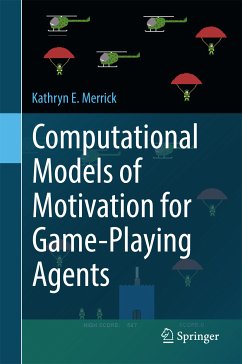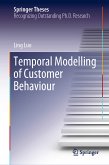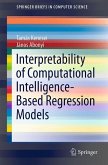The book is structured into four parts: game playing in virtual worlds by humans and agents; comparing human and artificial motives; game scenarios for motivated agents; and evolution and the future of motivated game-playing agents. It will provide game programmers, and those with an interest in artificial intelligence, with the knowledge required to develop diverse, believable game-playing agents for virtual worlds.
Dieser Download kann aus rechtlichen Gründen nur mit Rechnungsadresse in A, B, BG, CY, CZ, D, DK, EW, E, FIN, F, GR, HR, H, IRL, I, LT, L, LR, M, NL, PL, P, R, S, SLO, SK ausgeliefert werden.
"This is an interesting book on an interesting topic. It would be of interest to many in the field of AI, particularly those in multiagent systems and game playing." (Computing Reviews, June, 2017)









